- 55th Day of 2015 310 Remaining
- Spring Begins in 24 Days
- Sunrise:6:46
- Sunset:5:58
- 10 Hours 12 Minutes
- Moon Rise:10:35am
- Moon Set:12:46am(Wed.)
- Phase:
- Full Moon March 5 @ 10:06am
As the temperature begins to warm and the ground begins to thaw, earthworm casts appear, heralding the return of the robins. The more northern tribes knew this Moon as the Full Crow Moon, when the cawing of crows signaled the end of winter; or the Full Crust Moon, because the snow cover becomes crusted from thawing by day and freezing at night. The Full Sap Moon, marking the time of tapping maple trees, is another variation. To the settlers, it was also known as the Lenten Moon, and was considered to be the last full Moon of winter.
- Tides
- High:2:38am/3:55pm
- Low:9:26am/9:15pm
- Rainfall:
- This Year to Date:17.01
- Last Year:5.89
- Avg YTD:17.49
- Annual Avg:23.80
- Holidays
- National Tortilla Chip Day
- Single Tasking Day
- World Spay Day
- Dia de la Bandera (Flag Day)-Mexico
- Independence Day (1918)-Estonia
- On This Day
- 1582 --- Pope Gregory XIII issued a papal bull outlining his calendar reforms. (The Gregorian Calendar is the calendar in general use today.)

- 1803 --- The Supreme Court, led by Chief Justice John Marshall, decides the landmark case of William Marbury versus James Madison, Secretary of State of the United States and confirms the legal principle of judicial review--the ability of the Supreme Court to limit Congressional power by declaring legislation unconstitutional--in the new nation. U.S. Supreme Court ruled itself to be the final interpreter of all constitutional issues.
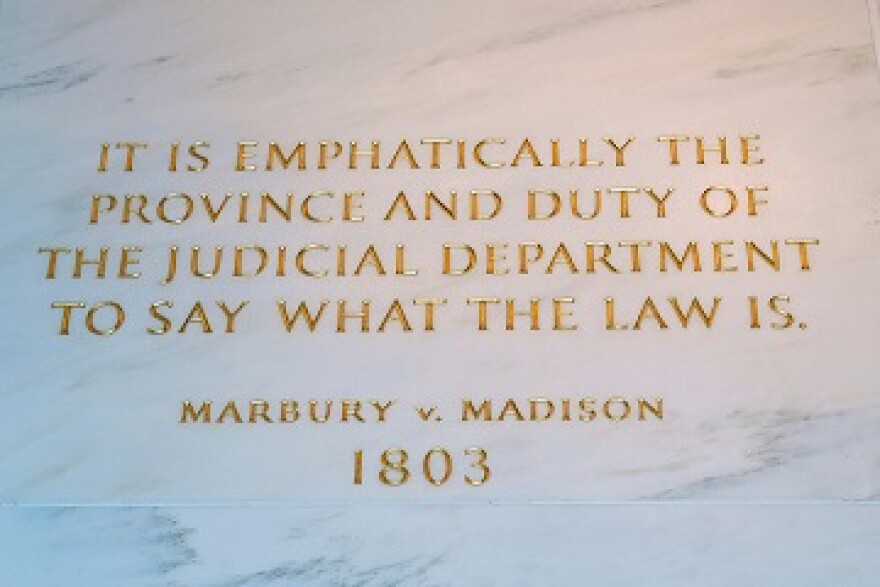
- 1836 --- Colonel William Travis issues a call for help on behalf of the Texan troops defending the Alamo, an old Spanish mission and fortress under attack by the Mexican army. A native of Alabama, Travis moved to the Mexican state of Texas in 1831. He soon became a leader of the growing movement to overthrow the Mexican government and establish an independent Texan republic. When the Texas revolution began in 1835, Travis became a lieutenant-colonel in the revolutionary army and was given command of troops in the recently captured city of San Antonio de Bexar (now San Antonio). On February 23, 1836, a large Mexican force commanded by General Antonio Lopez de Santa Ana arrived suddenly in San Antonio. Travis and his troops took shelter in the Alamo, where they were soon joined by a volunteer force led by Colonel James Bowie. Though Santa Ana's 5,000 troops heavily outnumbered the several hundred Texans, Travis and his men determined not to give up. On February 24, they answered Santa Ana's call for surrender with a bold shot from the Alamo's cannon. Furious, the Mexican general ordered his forces to launch a siege. Travis immediately recognized his disadvantage and sent out several messages via couriers asking for reinforcements. Addressing one of the pleas to "The People of Texas and All Americans in the World," Travis signed off with the now-famous phrase "Victory or Death."

- 1839 --- Mr. William S. Otis received a patent for the steam shovel.
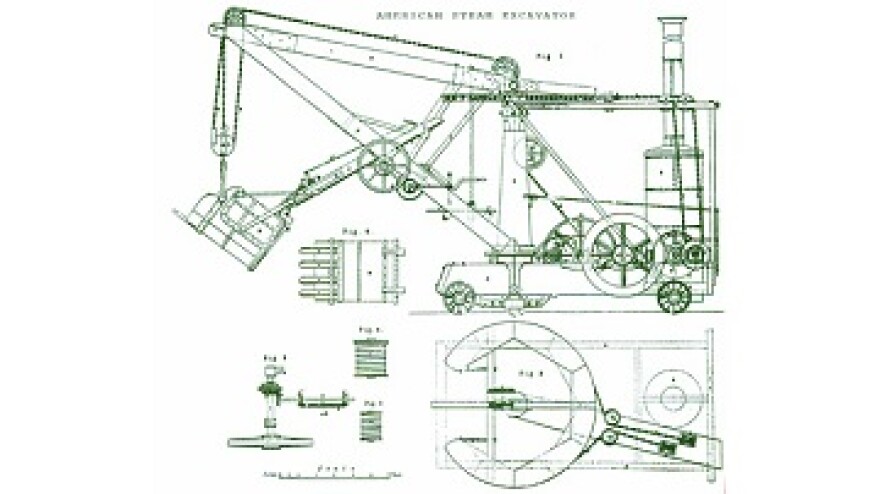
- 1857 --- The first shipment of perforated postage stamps was received by the U.S. Government.
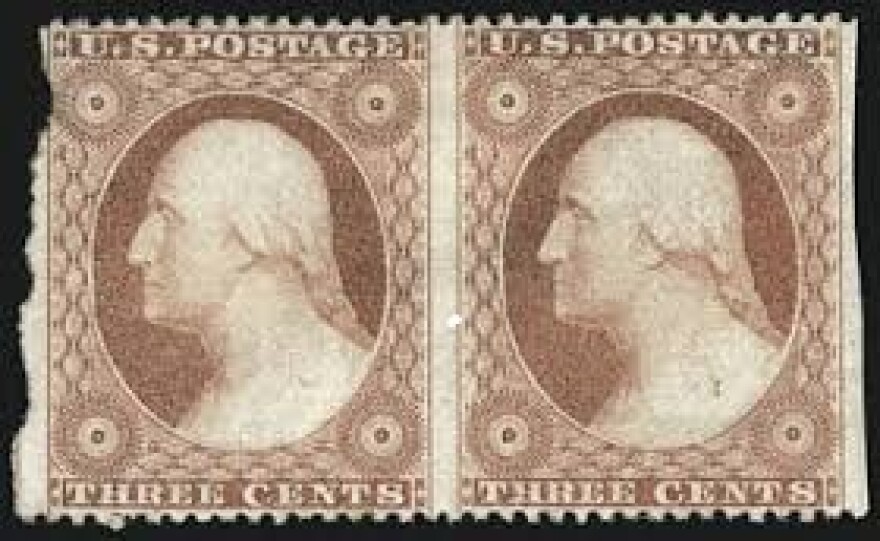
- 1868 --- The U.S. House of Representatives votes 11 articles of impeachment against President Andrew Johnson, nine of which cite Johnson's removal of Secretary of War Edwin M. Stanton, a violation of the Tenure of Office Act. The House vote made President Johnson the first president to be impeached in U.S. history. Johnson was later acquitted by the Senate.

- 1917 --- During World War I, British authorities give Walter H. Page, the U.S. ambassador to Britain, a copy of the "Zimmermann Note," a coded message from Arthur Zimmermann, the German foreign secretary, to Count Johann von Bernstorff, the German ambassador to Mexico. In the telegram, intercepted and deciphered by British intelligence in late January, Zimmermann stated that in the event of war with the United States, Mexico should be asked to enter the conflict as a German ally. In return, Germany promised to restore to Mexico the lost territories of Texas, New Mexico, and Arizona. After receiving the telegram, Page promptly sent a copy to U.S. President Woodrow Wilson, who in early March allowed the U.S. State Department to publish the note. The press initially treated the telegram as a hoax, but Arthur Zimmermann himself confirmed its authenticity. The Zimmermann Note helped turn U.S. public opinion, already severely strained by repeated German attacks on U.S. ships, firmly against Germany. On April 2, President Wilson, who had initially sought a peaceful resolution to end World War I, urged the immediate U.S. entrance into the war. Four days later, Congress formally declared war against Germany.

- 1925 --- A thermite was used for the first time. It was used to break up a 250,000-ton ice jam that had clogged the St. Lawrence River near Waddington, NY.

- 1938 --- DuPont begins production of nylon toothbrush bristles. A patent had been granted in 1937. The nylon bristles replaced hog bristles.

- 1938 --- The entertainment trade newspaper Variety reported that the film studio Metro-Goldwyn-Mayer (MGM) had bought the rights to adapt L. Frank Baum’s beloved children’s novel The Wonderful Wizard of Oz for the screen, and that the studio has cast 16-year-old Judy Garland in the film’s central role, Dorothy Gale.

- 1942 --- The Voice of America went on the air for the first time.
- 1945 --- American soldiers liberated the Philippine capital of Manila from Japanese control during World War II.

- 1946 --- Juan Domingo Peron, the controversial former vice president of Argentina, is elected president. In 1943, as an army officer, he joined a military coup against Argentina's ineffectual civilian government. Appointed secretary of labor, his influence grew and in 1944 he also became vice president and minister of war. In October 1945, Peron was ousted from his positions by a coup of constitutionally minded civilians and officers and imprisoned, but appeals from workers and his charismatic mistress, Eva Duarte, soon forced his release. The night of his release, October 17, he addressed a crowd of some 300,000 people from the balcony of the presidential palace, and promised to lead the people to victory in the coming presidential election.

- 1956 --- The city of Cleveland invoked a 1931 law that barred people under the age of 18 from dancing in public without an adult guardian.
- 1964 --- The Beatles appeared for the 3rd time on "The Ed Sullivan Show."

- 1968 --- The Tet Offensive ends as U.S. and South Vietnamese troops recapture the ancient capital of Hue from communist forces. Although scattered fighting continued across South Vietnam for another week, the battle for Hue was the last major engagement of the offensive, which saw communist attacks on all of South Vietnam's major cities. In the aftermath of Tet, public opinion in the United States decisively turned against the Vietnam War.

- 1982 --- Wayne Gretzky scores his 77th goal, breaking a record held by Phil Esposito of 76 goals in a single season that was previously thought unbeatable by many fans.

- 1988 --- The U.S. Supreme Court votes 8-0 to overturn the $200,000 settlement awarded to the Reverend Jerry Falwell for his emotional distress at being parodied in Hustler, a pornographic magazine. In 1983, Hustler ran a piece parodying Falwell's first sexual experience as a drunken, incestuous, childhood encounter with his mother in an outhouse. Falwell, an important religious conservative and founder of the Moral Majority political advocacy group, sued Hustler and its publisher, Larry Flynt, for libel. Falwell won the case, but Flynt appealed, leading to the Supreme Court's hearing the case because of its constitutional implications. In February 1988, the Supreme Court unanimously overturned the lower court's decision, ruling that, although in poor taste, Hustler's parody fell within the First Amendment's protection of freedom of speech and the press.
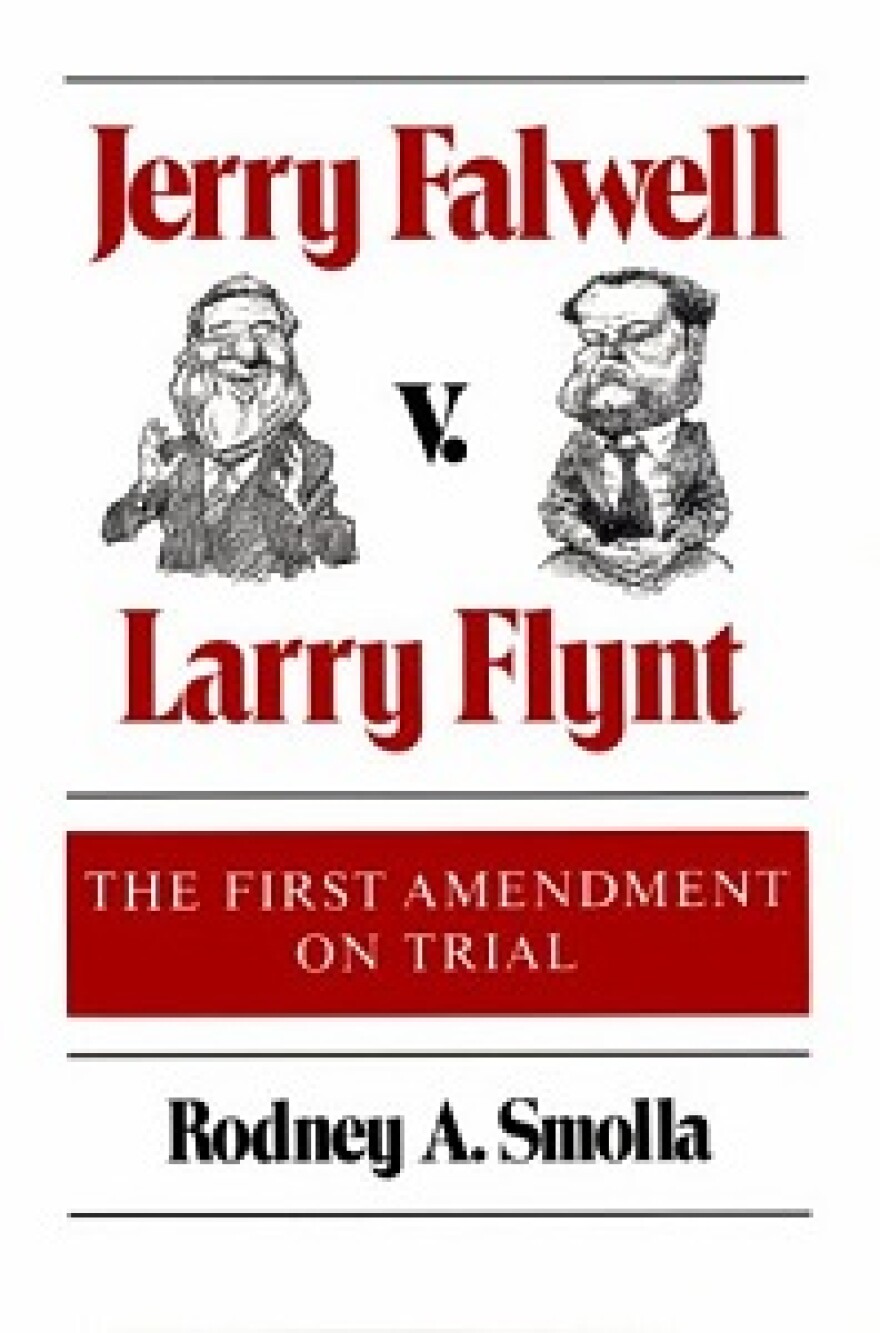
- 1989 --- A fossil egg was found in Utah that was 150 million years old.
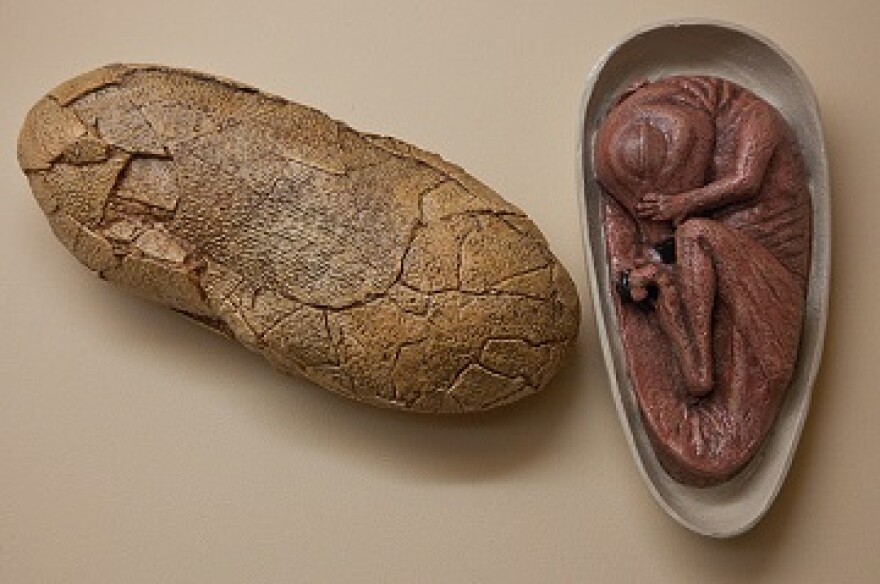
- 1990 --- Bob Dylan joined Roger McGuinn, Chris Hillman and David Crosby to sing "Mr. Tambourine Man" and "Turn, Turn, Turn" at a Los Angeles tribute to the late Roy Orbison.

- 1992 --- The U.S. Postal Service unveiled 2 versions of its proposed Elvis stamp for fans to vote on. The younger Elvis design won and was issued on January 8, 1993.

- 1993 --- Eric Clapton won six Grammy Awards for the song "Tears In Heaven."

- 1999 --- Lauryn Hill won five Grammys for her debut solo album, "The Miseducation of Lauryn Hill."

- 1999 --- A massive avalanche in the Austrian Alps buries homes and kills 13 people in Valzur. The avalanche came only one day after an avalanche in the neighboring village of Galtur killed 25 people. The winter of 1998-99 featured continuously heavy snow in much of Austria, as well as in Switzerland and the French Alps.

- 2008 --- Cuba's parliament named Raul Castro president, ending nearly 50 years of rule by his brother Fidel.

- Birthdays
- George Harrison
- Michelle Shocked
- Abe Vigoda
- Steven Jobs
- Chester Nimitz
- Winslow Homer
- Honus Wagner
- Mary Ellen Chase
- Wilhelm Grimm
- Mark Lane
- Renata Scotto
- Rupert Holmes
- Edward James Olmos
- Helen Shaver
- Fred Dean
- Jeff Garcia
- Bonnie Somerville

